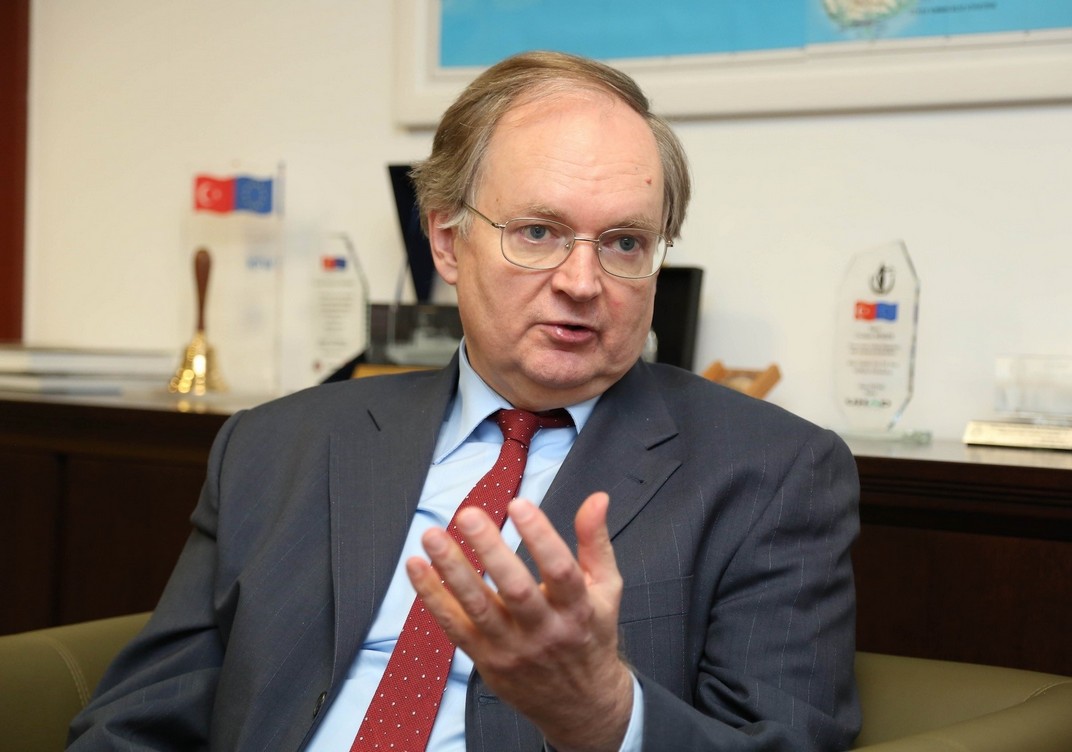
A new push among European Union (EU) member states to repatriate Syrian refugees is raising alarms among human rights groups and the United Nations, which continue to stress that Syria remains unsafe due to ongoing war crimes and human rights abuses by the Assad regime. Despite these warnings, momentum is building within parts of the EU to reconsider engagement with Damascus and facilitate the return of refugees.
The Italian newspaper Il Folio recently revealed that the EU has appointed Austrian diplomat Christian Berger as its new special envoy to Syria, a decision spearheaded by Italy and supported by several member states. Berger, previously the EU ambassador to Turkey and Egypt, is expected to use his extensive experience in Syrian affairs to shape EU policy. This appointment signals a shift pushed by Italy, urging the EU to review its stance on Syria, including the “three no’s” policy – no to lifting sanctions, no to normalization, and no to reconstruction without political progress.
Italy’s right-wing Prime Minister Giorgia Meloni has been instrumental in advocating for a recalibration of the EU’s Syria policies, holding discussions with leaders to promote refugee returns. A leaked European document titled “No Paper,” prepared by seven EU foreign ministers, proposes abandoning these long-standing policies and engaging with Damascus to discuss the refugee situation. This document includes recommendations for supporting infrastructure rehabilitation and improving civil documentation access to facilitate returns, despite criticism that these actions could strengthen the Assad regime without securing guarantees of safety for returning refugees.
The UN and rights groups warn that these measures contradict existing EU principles and fail to address ongoing violations in Syria. Human Rights Watch recently reported that refugees returning from Lebanon face a significant risk of repression, arrest, and even torture in detention centers controlled by the Syrian government. This was underscored by the commission’s findings that documented the arrest of four Syrians who returned after the latest conflict escalation in Lebanon.
Paulo Pinheiro, head of the Independent International Commission of Inquiry on Syria, called for vigilance and caution. Speaking before the UN General Assembly, he highlighted the deadly threats facing Syrians both at home and abroad, stressing that the situation in Syria has not improved to a point where refugee repatriation is safe. “The return of Syrians who are justifiably afraid of persecution in their homeland underscores the difficult choices they face,” Pinheiro said, emphasizing that returning may expose them to violence, forced conscription, or detention.
A coalition of EU countries including Italy, Austria, and Greece argues that current geopolitical shifts, such as the Ukraine conflict and evolving Middle Eastern alliances, necessitate a more “flexible” EU approach. However, this stance is met with opposition from other member states wary of legitimizing the Assad regime.
The debate has intensified amid growing pressure from right-wing political groups in Europe and concerns over migration and security linked to instability in the region. Observers warn that any policy changes should prioritize human rights and the protection of those who have fled violence. The EU’s decision to appoint Berger and discussions surrounding potential repatriation marks a pivotal moment for its future engagement with Syria, one that could redefine its humanitarian and diplomatic landscape.








